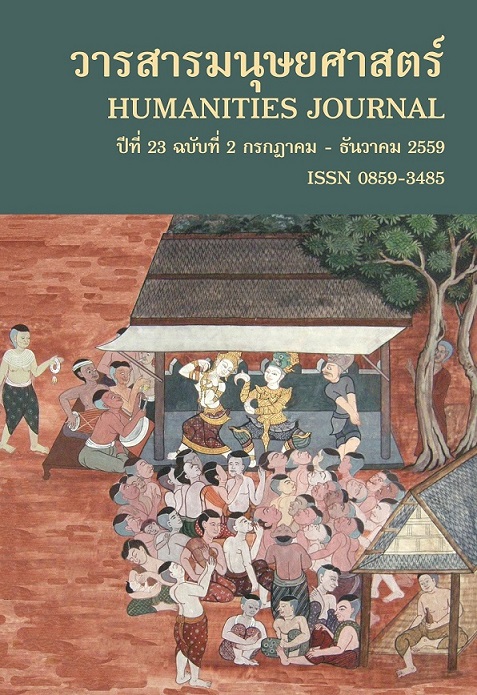Conditional Constructions in Thai A Lexicase Dependency Analysis
Main Article Content
Abstract
This study aims at investigating conditional constructions in Thai using Lexicase Dependency framework. The findings of the study revealed that semantically there are two main types of conditional constructions: affirmative and negative. Both constructions have different syntactic characteristics. The structures of the conditional affirmative constructions are of two subtypes. That is, the conditional affirmative constructions can appear with or without a subordinate conjunction thaâ ‘if’. The thaâ ‘if’ conditional affirmative constructions functions as the subordinate clause of a whole construction (in the same way as if clause in English). In addition, the conditional affirmative constructions without thaâ ‘if’ also functions as the subordinate clause of a whole construction. Semantically this kind of conditional construction implies the meaning indicating conditions. The structures of conditional negative constructions are of two subtypes. That is, the conditional negative construction appears with a subordinate conjunction thaâ ‘if’ and a negative adverb mây ‘not’, this types of construction only functions as a subordinate clause of the whole construction. The other type of conditional negative construction has a double negative mây--mây ‘(if) not, (then) not’, the second negative clause functions as the first commanding verb or in a simple term the main clause, whereas the first negative clause functions as a subordinate clause of the whole construction.
Article Details
References
Hawaii.
Pagotto, L. (1985). On impersonal verbs in English. University of Hawaii Working Papers in Linguistics, 17, 1-70.
Prasithrathsint, Amara. (2013). Parts of speech in Thai: A syntactic analysis. Bangkok: A.S.P. Publishers.
Savetamalya, S. (1996). Verbal predicates as adnominal modifiers in Thai. In PAN-ASIATIC Linguistics: Proceedings of the Fourth International Symposium on Languages and Linguistics (pp. 79-98). Institute of
Language and Culture for Rural Development, Mahidol University at Salaya, Thailand.
Starosta, S. (1988). A case for lexicase: An outline of lexicase grammatical theory. London: Pinter Publishers.


